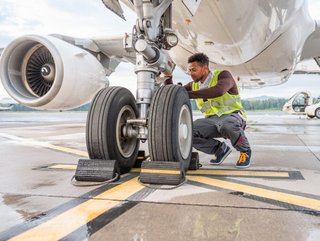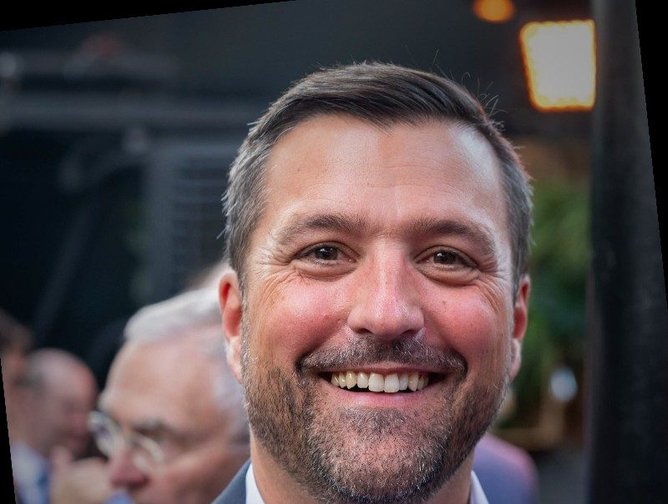JPB Système: Aerospace challenges & sustainable processes

Hi Grégory, what are your main observations of 2023 so far and are they those of opportunity or challenge?
“It’s probably a mixture of both. Following COVID-19, this year marks the first full year in which most of the industry is back at 100%. Be it for business or leisure, people are travelling again, but the pressure is on to get back to full volumes quickly and even surpass those of 2022, while struggling with an industry-wide recruitment issue.
“To compound things further, other external factors have contributed to material shortages, which has in turn driven up costs. In fact, I would say that rising costs across the board – encompassing materials, energy prices, salaries and other expenses that are an ongoing issue for many within the whole aerospace manufacturing and supply chain. So, while we are pleased to be getting growth back on track and putting COVID-19 in the rear-view mirror, like many others, we are grappling with plenty of other concurrent challenges.”
With the digitalisation of general manufacturing continuing to gather pace, is this something that you are also seeing within the aerospace sector?
“I think it’s recognised that within the aerospace sector, the pace of digitalisation is somewhat slower than in other key sectors like automotive. It is of course happening, especially among large players, but there are still plenty of companies deploying older, mechanised technologies. JPB Système is ahead of the curve having begun to automate its operations some time ago. Indeed, we were one of the first companies in France to establish Industry 4.0 production that increasingly deploys robots and technologies like 3D printing to advance this. We’re not seeing it as onlookers; we’re embracing it and driving it.
“The benefits of automated production are even more obvious if you consider the current issue of skilled labour shortages. We would all favour employing more skilled personnel if we could, but we are nonetheless offsetting that problem if we are able to automate related areas of manufacturing processes and make ourselves less reliant upon it when it isn’t available.”

Grégory Chauvet, General Manager of JPB Système.
The aerospace sector is currently struggling with a widespread recruitment problem, post-COVID-19. What do you think manufacturers and the industry should be doing to overcome this issue?
“We must come together as an industry to not only tackle the current recruitment challenge, but also constantly highlight our worth so that over the long term, we ensure the next generation remains enthusiastic about joining the aviation sector.
“It’s two-fold: first, as employers we need to make the effort to attract people to the industry in the first place. From our own perspective, we often welcome students into our facility to showcase our advanced production operations and enable the potential operators and engineers of tomorrow to see for themselves the exciting and attractive workplaces the sector offers – environments that are sometimes a million miles from their preconceptions.
“Second, once they are through the door, employers need to demonstrate their commitment to new hires by supporting growth either within the role or department, but also across other areas of the company. For me, it’s an obligation to ensure our people remain permanently satisfied. That means encouraging them to acquire experience in other areas, building a stronger and more rounded set of skills so that they are energised and inspired as they develop and learn, rather than remain in one lane for the whole time they are with us.
“Fundamentally, it’s about always proving to your employees that they are valued. I think the fact that at JPB Système, we were able to ride out the COVID-19 pandemic with zero reduction in headcount, underscores that.”
Sustainability is an increasingly important topic within this sector. How are you aligning your own processes and operations to support this?
“Everybody within the industry needs to continue their efforts in this regard. At the governmental level here in France, we’re seeing commitment to decarbonise the future of aviation with our President recently investing 1.2bn euros on R&D activities aimed at reducing the environmental impact of aircraft and related products. Indeed, our own ambitions in support of this objective have seen us secure financial support from the government as part of this initiative. This support enables us to further develop our pilot manufacturing line that deploys metal binder-jetting 3D printing technology for the creation and pre-industrialisation of aerospace parts for low-carbon aircraft.
“However, the focus on sustainability extends beyond the integration of environmentally friendly production technologies. For us, improving sustainability is a complete mindset that has seen us look at every way possible to reduce energy consumption and improve waste management. This comprises the continued adoption of cleaner techniques like recycling programmes and the increased integration of solar panels, to sourcing local suppliers wherever possible and shutting off our production machinery outside of operational hours – right down to encouraging employees to turn the light off when leaving a room.”
We’re seemingly never too far away from external events that impact supply chains. Be it the next pandemic or global geo-political issue, how do you ensure agility to help minimise future disruption?
“Predicting the exact nature of global events that might disrupt operations is always challenging. During the recent pandemic it came down to simple good planning insofar as materials ordering. Anticipating an imminent crisis, our CEO made the decision to over-stock on materials so that we could react quicker upon the industry’s recovery. Additionally, our R&D team stepped up exploration of alternative designs as a back-up plan to any subsequent issues with those materials.
“We have one - or two- years visibility with all customers when it comes to their requirements, so the material we over-stocked was already sold with zero chance of surplus production that would be either redundant or obsolete. Although the cash-conversion would be degraded from the decision to over-stock ahead of the actual need, for us it was – and always is – less about that and more about ensuring we maintain the highest level of customer satisfaction. This is not the case with all companies that are often governed by economics and short-term gain.”
This is obviously a tough sector in which to operate even without external geo-political or other factors to add to manufacturers’ woes. What advice would you offer other manufacturers to help them navigate rough waters?
“I think it’s about exploring ways to diversify one’s product portfolio, while in-building innovation within that solutions offering. In our instance, despite a long-standing heritage as a supplier to aerospace engine manufactures, we continue to look at how we take appropriate products into other relevant sectors like rail or energy where there may be similar application needs. Beyond existing products for new markets, we have already diversified as a company to provide entirely new advanced non-sector specific solutions for the wider manufacturing industry, evidenced by our KeyProd production monitoring solution.
“I would always say customer satisfaction and quality are paramount. After all, a technologically advanced product that meets the customers’ needs is of little use if you fail to hit delivery times or there are failure issues. Companies that can successfully address that collective mix stand a far-better chance of not only keeping their existing customers but winning new ones to future proof business.”
*************************************************
Check out our free upcoming virtual event, Manufacturing Digital LIVE, 6th December 2023.
For more insights into Manufacturing - check out the latest edition of Manufacturing Magazine and be sure to follow us on LinkedIn & Twitter.
Other magazines that may be of interest - Healthcare Digital.
*********************************************
BizClik is a global provider of B2B digital media platforms that cover 'Executive Communities' for CEO's, CFO's, CMO's, Sustainability Leaders, Procurement & Supply Chain Leaders, Technology & AI Leaders, Cyber Leaders, FinTech & InsurTech Leaders as well as covering industries such as Manufacturing, Mining, Energy, EV, Construction, Healthcare + Food & Drink.
BizClik, based in London, Dubai & New York offers services such as Content Creation, Advertising & Sponsorship Solutions, Webinars & Events.
- Exotec: Warehouse Automation & The British Alcohol IndustrySmart Manufacturing
- SAP’s AI Joule set to Transform Supply Chain ManufacturingAI & Automation
- Top Ten: Diverse Companies in ManufacturingProduction & Operations
- How Smart Factories are Reshaping the Manufacturing SectorSmart Manufacturing






